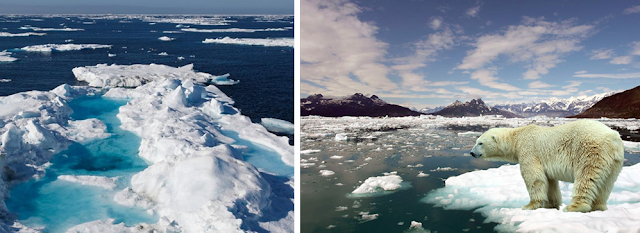The weather has gone mad
It's something I hear about a lot, have a gist of what it is, but don't know enough to explain it or be sure that I'm doing something about it. I know it's affecting me and you though – the weather here has been crazy! 30 degrees one day and 17 the next.
It gets quite some media coverage, but how much do we really know about it? A conversation with a friend last week sparked thoughts, and I figured I should take some time to understand this situation, at least enough to know what's happening, and know what I can do more in my everyday life to be a better citizen of the world.
Here's keeping it simple from online research:
• • •
G L O B A L W A R M I N G
What it is and how it happens
Carbon dioxide and other pollutants collect in the atmosphere like a thickening blanket, trapping the sun's heat, hence causing the planet to warm up. That's what we call Global Warming – when the average temperature of the Earth rises.

So what?
This affects a number of things, including weather, health, and where we live.
^ Nature not being natural ^
Wildfire – in Sydney's Blue Mountains this week, 200 homes were damaged or destroyed. Warmer temperatures increase the probability of drought. Less water = dryer = risk of wildfires.
Crazy hurricanes, like Hurricane Katrina. What happens is warmer water in the oceans pump more energy into tropical storms, making them stronger and potentially more destructive.
Heat waves. C'mon, we all understand heat when summer comes. But imagine it so blazing hot till you actually die from it.
Clogged up lungs. Air pollution which intensifies allergies and asthma, since pollutants are collecting in the atmosphere. Earlier this year when I went to Beijing, the air was so grey. I like the place, really. But by the seventh day, I was tired of the air. On my tenth day back in Singapore, I realised I forgot the sky was blue because I had not seen a blue sky in over a week.
Melting glaciers = sea-level rise = hello, not cool. Plus the water is going to flow to where you live, and if you live near the coast, you better watch out sooner. It might change our maps and displace populations.
Polar bear sub-populations might become extinct! Because they have to swim longer distance to reach icy areas that they can adapt to.
What can I do?
Keyword: Green
Reduce, reuse, recycle.
I love how Australia has recycling bins for every home.
Don't turn the air conditioning to a temperature where you have to wear a jacket. Use less heating and air conditioning: Even 2 degrees matters.
Use light bulbs with Compact Flourescent Light (CFL).
It lasts longer, uses two-thirds less enrgy, and gives off 70% less heat.
Turn off what you don't need! Lights, television, computer. Even standby mode matters. Though it's more troublesome to have to reach to turn off the main switch, do it because it counts.
Plant a tree!
During photosynthesis it absorbs carbon dioxide and gives off oxygen.
Make sure your car tyres are pumped up.
When they are under-inflated, you have to use more fuel,
which leads to higher emissions of bad gases.
In some sense, use only what you need. Excess is unnecessary.
• • •
Global warming does not just affect our future generations – it is already affecting us! So yes, go green!


Comments